The Poetry Center is pleased to announce the Spring 2020 season of classes and workshops, an exciting mix of generative poetry studios, lively workshops, and rigorous writing seminars in both poetry and prose. Registration opens for all of our classes on December 6, 2019 at 11:00 AM.
We're also thrilled to be able to continue to offer four need-based full scholarships for the spring. The Arnold Greenfield Scholarships program covers the full tuition cost of a course offered in the Classes & Workshops program. The scholarships are valued anywhere from $60 (for a single-session craft class) to $164 (for a multiple-week workshop), according to recipient interest. The application is simple, and any community member is eligible to apply for a scholarship if they can attest to personal financial need. Selection is by lottery. Applications open TODAY November 8th, and the deadline is set for November 21, so please spread the word to working writers for whom tuition would otherwise be a prohibitive financial strain.
Joan Larkin
Urgent Speech: Reading and Writing Poems that Have the Immediacy and Urgency of Speech
Wednesdays: January 29 & February 5, 19 and 26 from 6:00 PM to 8:00 PM
(No class Feb 12)
Tuition: $132
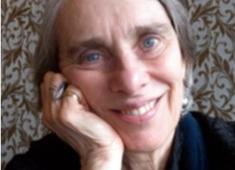
In 4 two-hour sessions, we will read and discuss a range of poems from diverse sources, contemporary and historical, in which the poem directly addresses someone or something named or unnamed––self or other, dead or living, antagonist or beloved. Poems offered for close reading will include Whitman, Dickinson, Keats, Rukeyser, Adrienne Rich, Etheridge Knight, Audre Lorde, and Frank Bidart, among others. Participants will be invited to write and share new poems sparked by our reading and discussion. We'll consider the music and energy of speech––its actual physical intensity––and some of the ways it can open the poem to expose what lies under the surface of ordinary life. We'll explore how the poet's concept of a reader influences word-choice and tone and whether the poem's language is elevated or colloquial, compressed or expansive.
*
Pam Uschuk
Wild Tales: Writing Lyrical Nature / Eco Essays
Tuesdays: February 4 – February 25 from 6:00 PM to 8:00 PM (8 hours)
Saturday: February 29 from 10:00AM to 3:00PM (5 hours), with a lunch break from 12:00PM-1:00PM
Tuition: $148
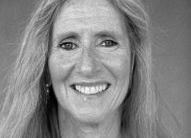
This four-week intensive writing class is a combination of generative writing prompts, readings, in-class writings and feedback. Writing about one’s experience in nature or the wild is an American tradition. Writing about ecological problems is relatively new. We will explore ways that writers have written in lyric essays about the natural/wild world. Often these essays are rooted in the writer’s experience in the natural world. Sometimes these essays border on memoir. Other times, these lyric essays are more scientific and depend on research about wild animals, plants, effects of climate changes, water systems, ocean conservation, fracking, exploitation of public lands, and others. We will read a variety of essays written by Linda Hogan, Barry Lopez, Alice Walker, Alison Hawthorne Deming, Terry Tempest Williams, Louise Erdrich, Charles Bowden, Luis Alberto Urrea, Camille Dungy, Brenda Peterson, Rick Bass, David Quammen and more. Topics covered include Climate Change, Endangered Species, an Indigenous view of the environment, Urban Nature, Wilderness Preservation, environmental border issues and the like. The goal of this writing intensive is transformation, empowerment, and learning writing techniques by exploring the lyric nature or ecological essay. We will also devote at least one session to exploring powerful methods to weave poetry and prose to create an essay. Participants will be provided with prompts and writing exercises, and given time to write. Because we have a few weeks, written feedback for participant writings will also be provided. Finally, we will discuss ways to get participant writing into print or online magazines.
*
Monica Sok
Saturday: February 15, 2020 from 10:30 AM to 12:30 PM
Tuition: $60
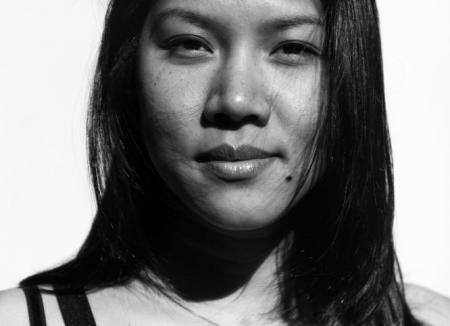
When writing about a difficult history, resilience becomes part of the creative process. Reclaiming a narrative, in many ways, is critical to the spirit of a poem––especially if that history has been marginalized, erased, or silenced. The poem becomes a space for us to persist. In this master class, we will do close readings of poems that activate imagery, tone, and repetition. There will be discussion and generative writing.
*
Tiana Clark
Breaching the Boundary: Breaking Out of Form and the Fourth Wall in Poetry
Wednesday: February 12, 2020 from 6:00 PM to 8:00 PM
Tuition: $60
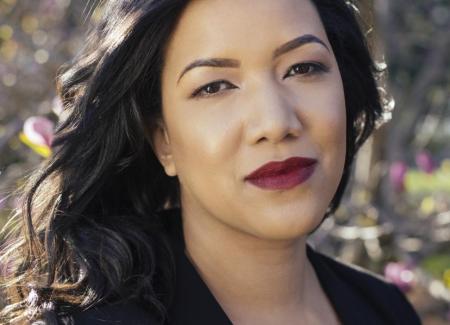
Kenneth Burke states that the notion of "appetite" involves expectations and cravings, which can be understood in the context of form. He continues, "Form in literature is an arousing and fulfillment of desires. A work has form in so far as one part of it leads a reader to anticipate another part, to be gratified by the sequence." But how do we meaningfully interrupt that sequence, that sense of expectation and patterning in a poem? How do we invent something new, or what if the poem itself demands a deviation?
For this class, we'll examine what it means to skillfully break out of form and the fourth wall, or, as Harold Bloom says, "swerve away" from our literary predecessors. Making and breaking and blurring forms is an exciting, fresh practice that often leads to revelation, and, most importantly, surprise and transformation by toggling release and restraint.
We'll experiment blending and diverging from received and free-verse poems in hopes of starting new drafts out of our comfort zones. This class will help you to investigate and question your own habits as well as your relationship to the psychology of poetic form and the theater of the page. We'll look to poems from Ross Gay, Jericho Brown, Jennifer Chang, Danez Smith, Terrance Hayes, Denis Johnson, Elizabeth Bishop (and more!) as we discuss the idea of "breaking the fourth wall in poetry"—meaning the performance of the poem is thoughtfully disrupted by directly referencing the reader or imagined other.
In this class, you will write, share, and offer thoughtful feedback. Come ready to play and slay the page!
*
Cynthia Hogue
Tuesdays: March 17 - April 7 from 6:00 PM to 8:00 PM
Tuition: $132

Myths house shared national and cultural narratives and symbols that writers have long mined for material. In the poetry of revisionist mythmaking, poets recast the received plot in order to tell a new story. In this course, we will seek to understand this major mode of cultural critique and encoded expression, mythopoesis, which poets employ to transform culture by changing the stories we tell about ourselves. In four two hour sessions, we’ll discuss samples of poetry written in that mode (for example, Elizabeth Bishop, Anne Sexton, Anne Carson, Sylvia Plath, Adrienne Rich, Audre Lorde, Jerome Rothenberg, Nathaniel Mackey, and Eleanor Wilner). We’ll discuss different types of mythopoesis, and consider how poets approach their subjects, address their concerns, and make their poems. Out of our readings, class members will be invited to generate writing that we share each week. This course will be designed to offer a forum for participants to deepen their own generative processes in dialogue with the works we’re reading—and writing—together. The class may include some workshop type feedback if time allows.
*
Dorian Rolston
Writing Well: Essay as Self Help
Wednesdays: March 18 – April 8, 2020 from 6:00 PM to 8:00 PM
Tuition: $132
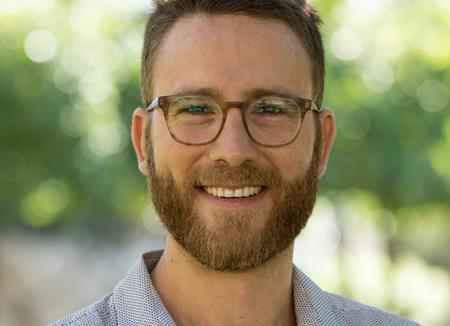
There’s a sense some of us have that our writing could be more than an art form but a way of life. This is actually confirmed by the tradition of the essay, where Montaigne begins by asking himself, “What do I know?” and that spirit of radical self-inquiry extends to the present day, with Megan Boyle kicking off Liveblog nearly 500 years later as such a project: “A FUNCTIONAL THING THAT WILL HOPEFULLY HELP ME FEEL MORE LIKE IMPROVING MYSELF.” Reversing the old cliché of the “struggling artist,” this course attempts to put forward a method for writing, essays in particular, that serves the dual purpose of helping us to be better on the page and off.
Since we’ll be approaching this as daily practice, the only requirement is that we show up with some sort of regular writing discipline, or at least a strong commitment to starting one. Some of the techniques we can expect to cover: making the ordinary extraordinary (Defamiliarization), accepting inner conflict (Negative Capability), taking control over our life story (Rescripting), putting ourselves in other people’s shoes (Magic If). In addition, students can expect to come away with a daily regimen for making these habits of mind, and some understanding of the latest research on writing and well-being. Along the way, we’ll be acquiring a host of literary models, and a few people in our lives to call “our readers.” If Zen master Suzuki is any indication, with any luck we’ll end off better than we started. “Each of you is perfect just the way you are,” he says. “And you can use a little improvement.”
*
Denise Chávez
Writing Marrow: HEART. SOUL. SPIRIT. ESSENCE. SUBSTANCE. CENTER.
Saturday: April 25, 2020 from 10:30 AM to 12:30PM
Tuition: $60
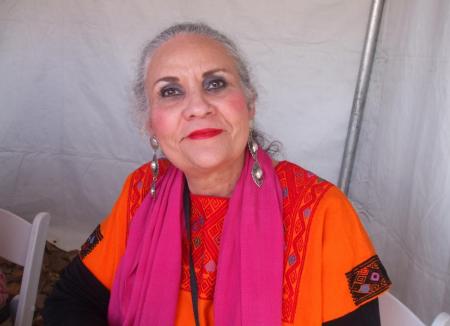
What does it take to write from the inside out? And why would anyone want to anyway? It’s too painful. I’ll think about it later. Maybe in two years. When I retire. When my children leave home. When I have more time. When I feel better. When when when?
Now is the time to work those stories, tell that tale, dance that dance, climb that peak, walk headstrong into that valley, perhaps slide down that abyss a gatas maybe crawling like a baby, perhaps unsure, but daring,, and do it without fear. Okay, you can be afraid, but not for too long. Once we start writing, we learn to cast aside doubt and take that little child that is our story, that little demon boy or girl, the overprotective grandmother or stern grandfather, that cautious smothering mother and hard unforgiving father and set him or her down and say, “I know you asked me not to write about you. Sorry, but I have to.”
In this intensive workshop led by Denise Chávez we will explore and then gather the stories that reside in the deepest part of our bones, in that interior place that is Marrow. Core. Heart. Soul. Spirit. Essence. Substance. Center.
This is an exercise driven, no-holds- barred workshop for new writers, seasoned writers, all of us a little battle-scarred, but clearer and more resilient as a result of the Journey.
Let's laugh a lot and cry a little bit.
Our stories will make us strong.
*
Joe Watson
Free Time: Building a Community of Mentors for Incarcerated Writers
Saturdays: January 25, February 29, March 28, April 25, May 30 from 10:00 AM to 12:00 PM
Tuition: Free
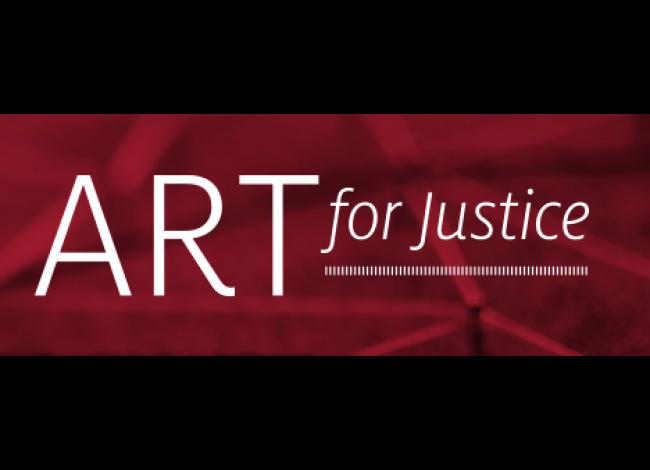
No registration necessary.
Most incarcerated writers are locked up in facilities so rural that they rarely receive the level of mentorship and encouragement beginning writers can easily access in the free world. The University of Arizona Poetry Center's monthly workshop aims to bridge the gap between the inside and outside by teaching community members to be helpful mentors and advocates for criminal justice reform. One Saturday every month, Joe Watson—a local writer, activist and former Arizona Department of Corrections prisoner—will educate workshop participants on life in Arizona’s jails and prisons; lead an exploration of creative writing on issues of mass incarceration and mass criminalization; and teach community members how to engage and critique the works of incarcerated writers through correspondence.

